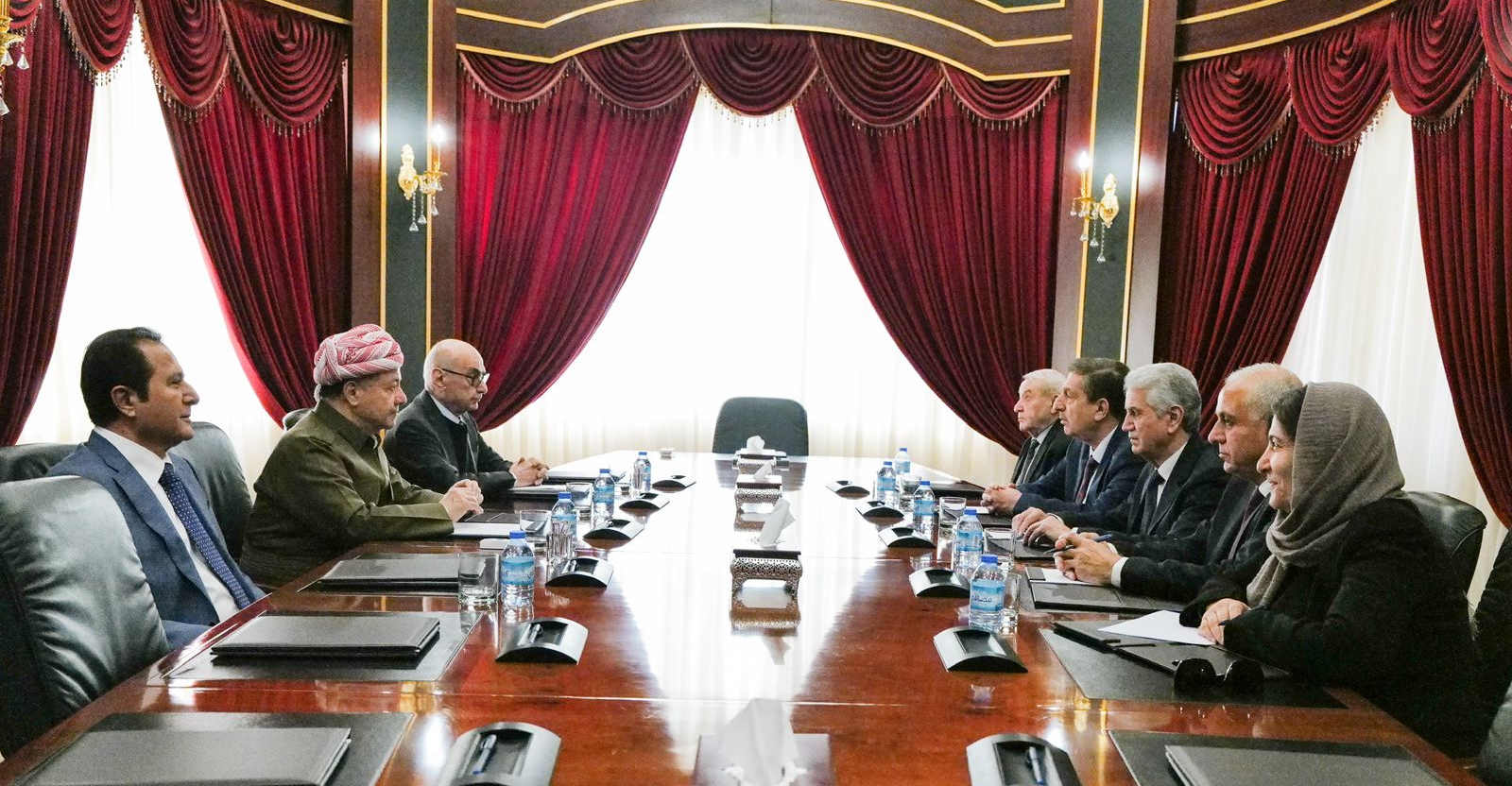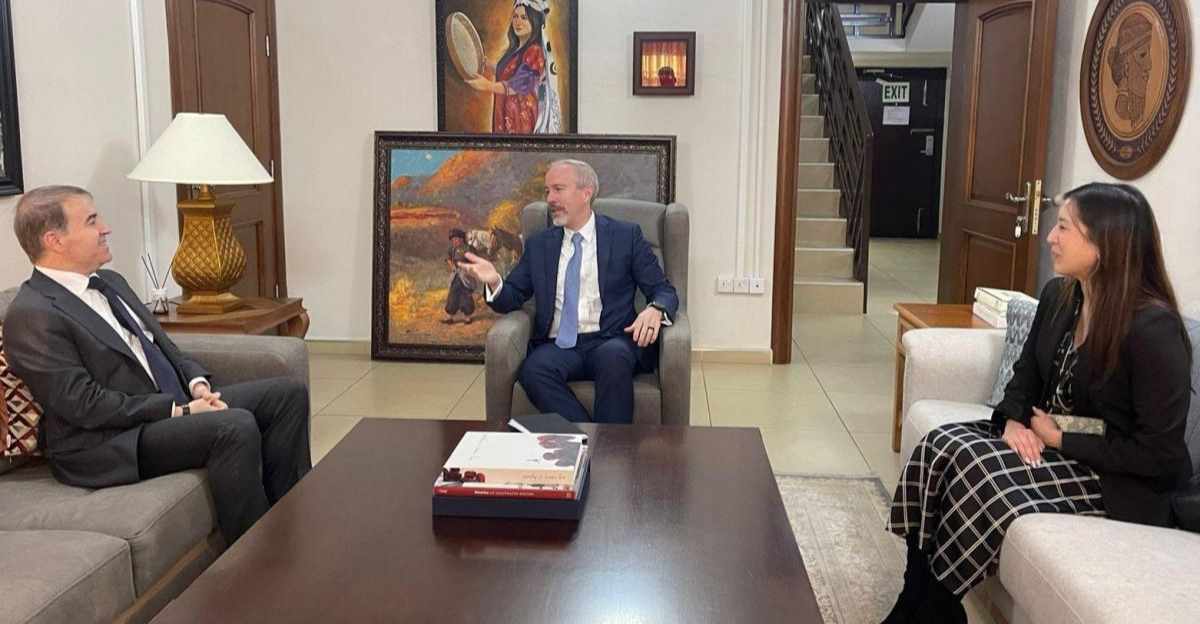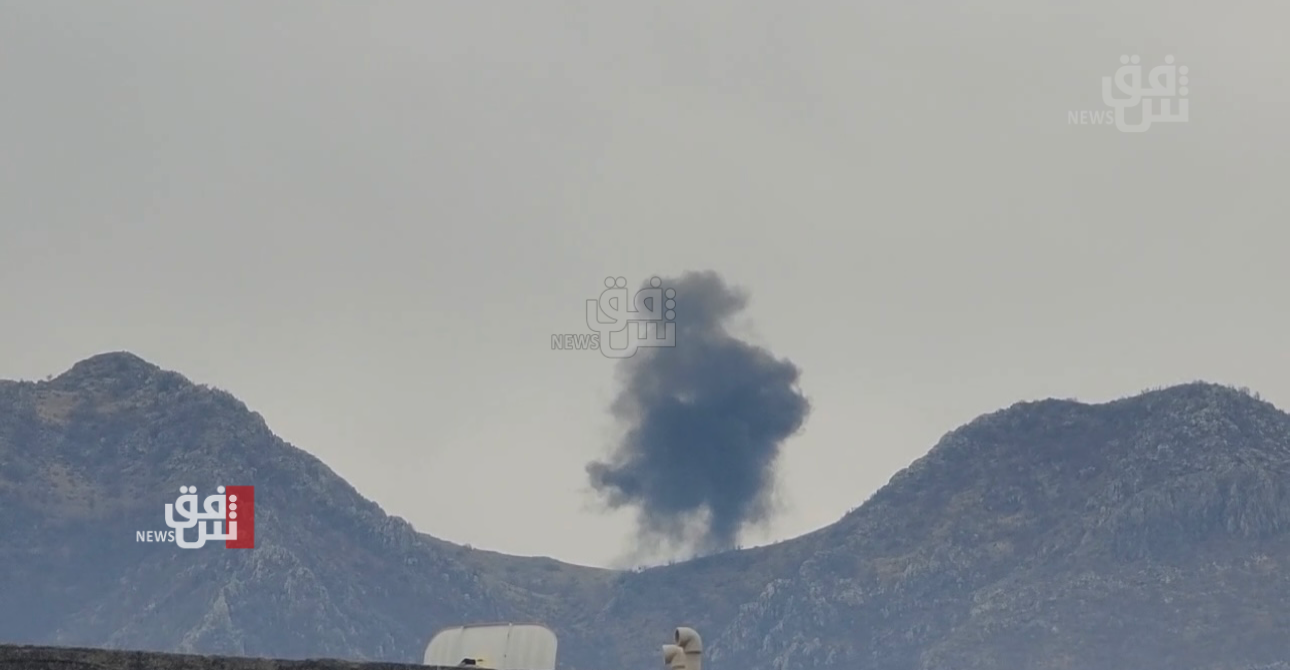Turkey's oil export disruption: Financial implications and diplomatic considerations for Iraq

Shafaq News / Despite the significance of the announcement made by the Iraqi Oil Minister Hayaan Abdulghani, along with the Turkish Minister of Energy and Natural Resources, Alp Arslan Bayraktar, in Ankara, regarding the agreement on the importance of resuming the flow of oil from Kurdistan (KRI) to Turkey after the completion of pipeline rehabilitation following earthquake damage, doubts have been raised about the connection between the suspension of the Iraqi-Turkish pipeline and the devastating earthquake.
In a statement issued by the Iraqi Ministry of Oil on Tuesday, both sides emphasized the importance of "resuming crude oil flows, after the completion of necessary rehabilitation and inspection operations required to be carried out after the earthquakes in February."
It is noteworthy that the destructive earthquake that struck Turkey was on February 6, 2023, while the closure of the pipeline was on March 25, 2023, making the time between the earthquake and the pipeline closure more than a month and a half.
"Flimsy" Turkish Narrative
In this context, Dr. Kofand Shirwani, an Iraqi academic and oil expert, stated that "what was said in the joint press conference between the Iraqi Oil Minister and the Turkish Energy Minister yesterday is the same statement given by the Turkish delegation that visited Iraq on June 16, that the Iraqi-Turkish pipeline needs inspection and maintenance to address the effects of the past earthquake (February 6)."
Shirwani added to Shafaq News Agency, "However, the reality is that the suspension that occurred for the Iraqi-Turkish line, as well as the line to Azerbaijan due to the earthquake, lasted only for a day or two, after which oil flow continued from February 6 until March 25."
"This means that the oil flow continued for about 50 days until it was halted on March 25 in response to the International Court of Arbitration's decision in Paris. This weakens the Turkish narrative about the existence of effects or technical flaws caused by the earthquake."
Shirwani quoted a Turkish economic expert who assured him during a previous meeting that "the Turkish line was not affected by the earthquake, and he [the Turkish expert] visited the facilities in Ceyhan and examined parts of the line, and he did not notice any damages."
Shirwani clarified that "if there were any damages, they could have been documented with photos or video footage for verification, and the Turkish technical teams could have collaborated with their Iraqi counterparts to quickly repair any damages to minimize the significant harm inflicted on the Iraqi economy due to this halt."
He concluded, "However, it is likely that the Turkish government is linking the re-export of oil through the Ceyhan port to other important files related to economic and security aspects, among others."
"Pretext for Other Purposes"
Meanwhile, a member of the Iraqi Parliament's Oil and Gas Committee, MP Kadhim Jaro, indicated that "Turkey is using the issue of damage to the pipeline for political reasons, including pressuring the Iraqi government following the International Court's decision to fine Turkey for allowing KRI to export oil without the Iraqi government's approval."
Jaro added to Shafaq News Agency, "Therefore, Turkey is trying to annul this fine, as well as withdraw the lawsuit filed in the International Court for the years from 2019 to 2023, considering that the initial fine covers only two years."
The deputy revealed that "Turkey is also attempting to negotiate a new agreement with the Iraqi government in order to gain benefits, including reducing the oil price and granting privileges in sales. Turkey, along with KRI, has been involved in buying and selling oil and determining buyers and prices throughout this period."
It is worth noting that on March 25, 2023, Turkey halted Iraq's exports of 450,000 barrels per day to the port of Ceyhan due to a decision by the International Chamber of Commerce's arbitration body. Ankara was required to pay around $1.5 billion in compensation to Baghdad for allowing the Kurdistan Regional Government (KRG) to export oil without the Iraqi government's consent.
The decision obligates all parties to ensure that the Iraqi Oil Marketing Company is the "sole authorized entity to manage export operations through the Turkish port of Ceyhan." As a result, Iraqi PM Mohammed Shia Al Sudani and KRG’s PM, Masrour Barzani, signed an agreement in early April 2023 to resume oil exports. However, the agreement has not been implemented yet.
Furthermore, Article 13 of the budget requires KRG to deliver no less than 400,000 barrels of crude oil daily to the State Oil Marketing Organization (SOMO) for export through the port of Ceyhan, or for local use in case of non-exportation.
Financial Losses
The victory of the federal government in the international arbitration case against Turkey has led to the "latter's suspension of the export oil pipeline from service, causing financial losses to Iraq. These losses have harmed the overall state revenues, which heavily rely on oil returns," according to economic expert Ali Abdul-Kadhim.
Abdul-Kadhim added to Shafaq News Agency, "Turkey is well aware that halting oil exports through its territory will force Iraq to reconsider the imposed fine. Turkey has taken a diplomatic and political approach guided by mutual interests, claiming that the earthquake is the cause and not a reaction to the International Court's decision."
It is likely that resuming oil flow will be on the agenda of the anticipated visit by Turkish President Recep Tayyip Erdo?an to Baghdad. Resolving this issue will likely require a political agreement between the two governments.




